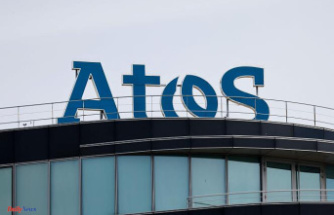Last week, unions and employers in the chemical industry agreed on a new wage package. The situation is different in the metal industry. After a third unsuccessful round of negotiations, IG Metall is drumming up industrial action.
After an unsuccessful third round of negotiations in the metal industry, the first warning strikes are imminent in the night from Friday to Saturday. The IG Metall trade union announced the first walkouts in night shifts in Bavaria and Baden-Württemberg. The employers submitted an offer in the third round. According to the umbrella organization Gesamtmetall, they offer a nationwide tax and duty-free inflation compensation premium of 3,000 euros for a term of 30 months. A permanently effective table increase is conceivable.
The heads of the two large IG Metall districts, Johann Horn and Roman Zitzelsberger, rejected this as completely inadequate. "Now we're going on warning strikes," said Zitzelsberger in Böblingen. The employees, tens of thousands of whom had already taken part in campaigns in September, wanted to emphasize their demands. IG Metall is demanding eight percent more wages for the 3.8 million employees in the metal and electrical industry over a period of twelve months.
Bavarian negotiator Horn said it wasn't really an offer because the employers didn't respond to the union's demands. "In this way, employers are provoking resistance from employees." In addition, no dates were given for the payment of the 3000 euros or the table increases. Zitzelsberger put the flat rate at an increase of two percent. "The offer lacks the oomph," said Daniel Friedrich, chief negotiator at IG Metall Coast. Except for the one-off payment, the employers remained vague. "And for that they demand automatic differentiation and also the possibility of canceling the Christmas bonus in the companies."
A one-off payment helps immediately and especially helps employees in the lower wage brackets, said Stefan Wolf, President of the Gesamtmetall. Employers thus showed their willingness to use the available scope. Employers argue that the onset of the recession will hit many companies hard.
The chief negotiator for the employers' association Südwestmetall, Harald Marquardt, explained that the lump sum means an increase of more than ten percent in the pay group below. IG Metall's demand means that the burden of higher consumer prices should be borne entirely by companies. But they suffered just as badly from inflation. The policy measures compensated for inflation by four to seven percent for an average earner.
In the next twelve months there will be no growth that can be distributed, said Stefan Wolf, head of Gesamtmetall. "Even the union's own Institute for Macroeconomics and Business Cycle Research (IMK) expects the economy to shrink instead of growing in 2023." According to IG Metall, negotiations will continue in Bavaria and Baden-Württemberg on November 8th.
In the chemical industry, unions and employers agreed last week on a new wage package for the 580,000 employees. It provides for special payments totaling 3,000 euros and table-based pay increases of 3.25 percent each for January 2023 and January 2024. The term ends on June 30, 2024. The head of the chemical union IG BCE, Michael Vassiliadis, sees the deal as a signal for other sectors as well.












